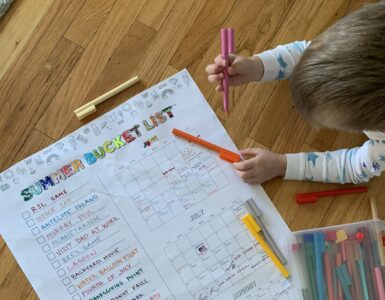Sara Parker from Utah Central Credit Union has rounded up some answers to some of the more common questions.
Don’t Let Your Tax Refund Go MIA
Every year millions of dollars in uncollected tax refunds are sent back to the IRS because taxpayers list the incorrect address in print, on the computer or on a preprinted label. Follow these simple steps to make sure you get your money.
College students who have filed their returns in the spring using a campus address and then move home at the end of the school year must inform the tax agency. To be safe, send the IRS a change of address notification.
When filling out your return, double check your address entry. Do you live on a ‘Street’ or an ‘Avenue?’ This is very important to ensure that you receive your refund.
Major life changes like marriage or a death in the family could result in undeliverable funds. If you’re recently married, notify the IRS once you move into your new home and if you’ve changed your name, the Social Security Administration should be informed as well. Your tax ID should match the new married name.
Avoid any possible delays by taking advantage of direct deposit. This way your refund goes directly into your bank account and you avoid the possibility of it getting lost in the mail or stolen from your mailbox.
Planning to Take Advantage of the New First-Time Homeowner’s Tax Credit?
Signed into law July 30, 2008, the Housing and Economic Recovery Act of 2008 will — among other things — extend a tax credit of up to $7,500 to first-time homebuyers. The tax credit, for ten percent of the purchase price, up to $7,500, is subject to income caps ($75,000 for single people and $150,000 for couples who file taxes jointly) and a specific timeline. Homeowners are eligible for the tax credit if they bought their home after April 8, 2008, and before July 1, 2009. Sounds good, but many don’t realize that this is a tax credit, not a tax deduction. It reduces the homeowners’ tax bill by up to $7,500 for the tax year in which the purchase was made, but, once repayment begins — two years after your purchase date — taking the whole credit then will mean an increase of $500 per year on your tax payments for 15 long years! It’s really an interest-free loan. So use it if it works for you, but know what you are getting into and plan the repayment into your budget!
Use Your Tax Refund Wisely
If you’re like many people, the day you received your W-2s you made a list of 10 things you could buy with your refund. Here’s a list of money-smart suggestions to make your refund go a long way:
• Pay off any late utility or housing expenses.
• Pay down your credit card debt. Use your refund to pay the highest interest rate obligation. If you can wipe it out completely, even better.
• Set up an emergency fund or add to your current one. Notice this is not a ‘Rainy Day
Fund,’ implying that you can use this money whenever you’re feeling down or having a
rough day. This money is for surprise emergencies and should be three to six months of
living expenses.• Refinance your home. With rates being low, now might be the time to use your refund to pay some or all of the closing costs.
• Fix up your home. Make those needed repairs that you’ve wanted to make.
• Service your car. Now that you have the money, stop putting off an oil change or tune-up.
• Expand your horizons. Take a course, start an education fund or train for something that will help you get ahead at work.
For more information, you can contact Utah Central Credit Union. You can find the branch office nearest you online at www.utahcentral.com
As a member of Utah Central Credit Union, you can take advantage of the Accel program, a free financial education and counseling program. To use this service, simply call 1-877-33ACCEL (332-2235) or visit them on the web at www.accelservices.org















Add comment